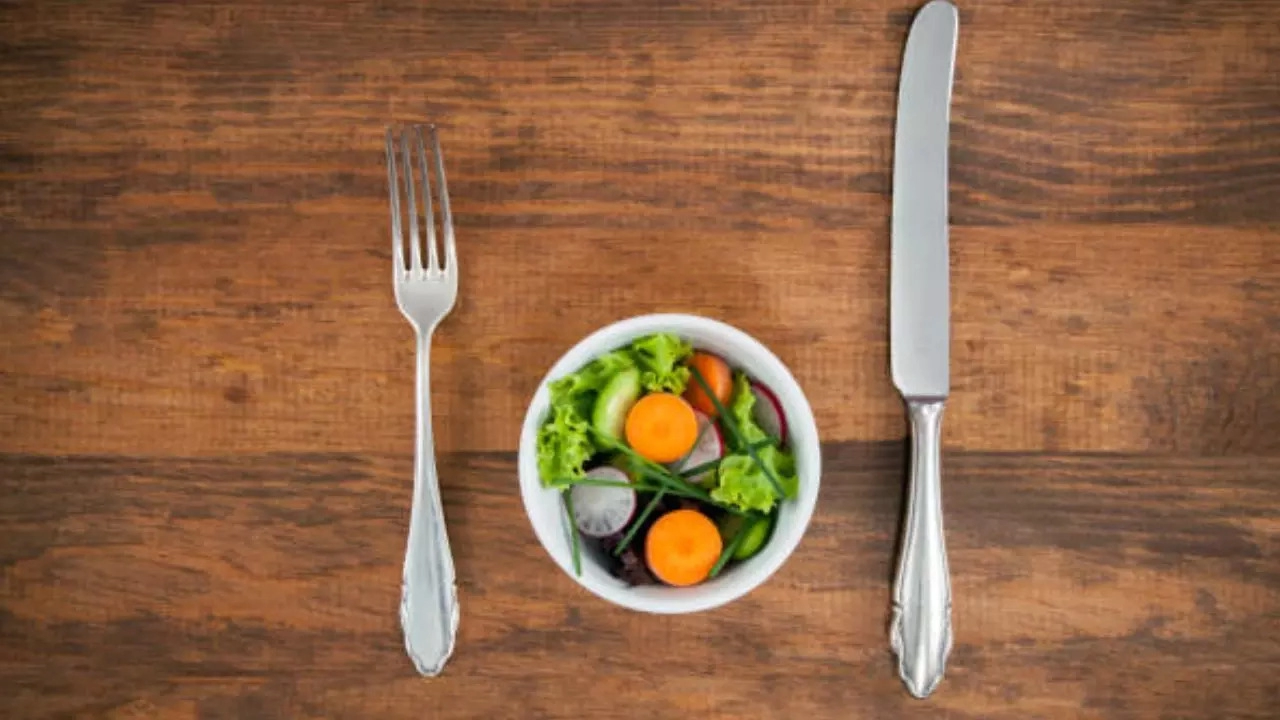Weight Loss Myths: Why Eating Small Frequent Meals May Not Be Best
Nov 09, 2024
News

Weight Loss Myths: Why Eating Small Frequent Meals May Not Be Best (Image Credits: iStock)
Small, frequent meal patterns have long been thought of as one of the best ways to lose weight. For years, it has been a belief that eating six small meals a day would "jumpstart" your metabolism, reduce hunger, and keep your weight in check. But recent findings suggest that this approach may not be as effective as once thought and even, in some cases, ineffective. Now the experts advise against increasing meal frequency and focus on reducing calorie intake, food quality, and portion size. But why is that? Is eating small frequent meals a myth? We got in touch with Dr Vishal Khurana, Senior Gastroenterologist, Metro Hospital, Faridabad. Here's what he says!
Metabolism And Meal Frequency: A Myth
The main reason to adopt more frequent meals is that eating more often will boost metabolism. It is true that digestion does temporarily raise metabolic rate, but that increase is known as the thermic effect of food (TEF) and is small and independent of meal frequency. Studies show that consuming equal calories over two large portions of food results in identical expenditure, whether you eat six small portions of the same food. In other words, eating multiple meals a day does not "stimulate" metabolism or have any significantly better effect for weight loss.
Higher And Greater Risk Of Over-Eating
Eating very frequent meals will make the situation worse by interfering with your appetite and then your likely chances of over-eating. Such a very frequent meal pattern is said to leave one not being full for quite a long time between meals hence making one crave more often for a snack. This more likely ends with having convenient high-calorie foods such as chips, cookies, processed foods, etc. This will actually lead to more people being on the consuming side for calories than intended, where their hunger is not brought under control, especially because they are relying on packaged snacks as well as ultra-processed food.
Risk Of Ultra-Processed Foods Consumption
Very few people can maintain a routine of six small, balanced meals in their diet. Those busy with work will go for the ultra-processed foods, which are ready to consume in a short time or convenient to take on the run. Such foods contain lots of sugar, unhealthy fats, and additives that might impede weight loss and lead to other health problems. These ultra-processed foods are less filling, making it even more difficult to maintain a calorie limit. Instead of meal frequency, people should focus on nutrient-dense whole foods in the right portions, which will support satiety and reduce the need for snacking between meals.
Quality Not Quantity
Quality, not quantity, is the name of the game when it comes to sustainable weight loss. Foods that are high in fiber, lean proteins, and healthy fats will fill you up and stabilize your blood sugar levels. The slow digestion of fiber causes one to delay hunger, leaving him full for a longer time. Lean proteins also require more energy to digest than other foods, so a mild addition to TEF without adding extra meals. Diets centered around these foods tend to make individuals feel full, less likely to overeat, and can maintain energy in an even and predictable manner all day.
Balanced Meals
In some, three balanced meals a day may be a better strategy for controlling hunger with larger, more satisfying portions. It also allows for simplification of calorie intake regulation and easier management of meal planning over processed snack attacks. With fewer meals, mindful eating and attention to hunger cues become simpler practice methods that can contribute to weight loss.
Get Latest News Live on Times Now along with Breaking News and Top Headlines from Weight Loss, Health and around the world.



